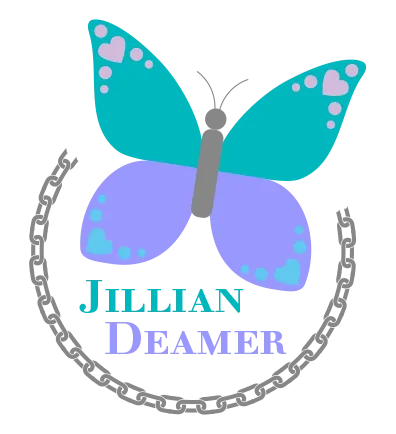BLOG
The Art of Sovereign Living
After Codependency

How to Make Decisions from Inner Alignment (After Psychological and Emotional Abuse)
For many women who've endured psychological and emotional abuse, decision-making can become a paralyzing experience. Even something seemingly simple—like choosing where to eat or how to spend an afternoon—can stir up anxiety, self-doubt, and an overwhelming fear of getting it "wrong." The decisions that others seem to make with ease become internal battlegrounds.
This isn't because you're broken. It's because your nervous system and sense of self have been shaped by survival. When you've lived in environments where your choices were dismissed, questioned, or punished or where you were made to feel selfish, dramatic, or wrong for having your own voice, it's natural that decision-making now feels heavy. You may find yourself constantly second-guessing, looking to others for permission, or saying yes when your whole body screams no. This struggle is not a flaw; it's a trauma adaptation.
Why It Feels So Hard to Trust Yourself
Abuse—especially when it's subtle, chronic, and emotionally manipulative—has a way of severing us from our inner knowing. You may have been gaslit so often that you began to doubt your own perceptions. Or perhaps you were conditioned to prioritize everyone else's needs over your own, trained to please, perform, and preserve peace at all costs.
Over time, your internal compass—the one that knows what feels right and what doesn't—becomes clouded or overridden. You may have learned that compliance kept you safe and that authenticity came with consequences. The result? You begin outsourcing your decisions to others, seeking reassurance, waiting for permission, or avoiding choices altogether.
This is how the pattern of self-abandonment is formed. And yet, beneath the layers of fear, shame, and uncertainty, your inner wisdom never disappeared. It's still there. It's just been waiting for you to come home.
The Cost of Disconnected Decision-Making
When you're disconnected from your inner truth, every decision feels like walking through a fog. You may feel burned out from constantly doing things you never really wanted to do. You might experience resentment in relationships, confusion about your next steps, or an ongoing sense of stuckness. A quiet ache comes from living a life shaped by what others expect rather than what you truly desire.
At its core, this disconnection is a form of self-abandonment—a survival strategy that may have once protected you but now keeps you from feeling safe in your own body and choices. Living this way can leave you feeling fragmented and powerless, as if you're always searching for answers outside of yourself, never fully sure if you're allowed to trust what you feel. But when you begin to reconnect with your inner voice and rebuild your decision-making from within, something extraordinary happens: you start to reclaim your sovereignty.
What It Means to Make Decisions from Inner Alignment
Inner alignment means making decisions from a place of deep connection to yourself—your truth, values, and desires. It means that your yes means yes, and your no means no—not because someone else approves, but because it's what's right for you. This kind of alignment is subtle. It doesn't shout or demand. It whispers, nudges, and guides. It's not always the easiest path, especially if you've been conditioned to prioritize others or avoid conflict. But it is the most liberating.
To live in inner alignment is to remember that you are the authority in your own life. It's choosing to make decisions not from guilt, fear, or obligation, but from grounded self-trust. And that trust grows stronger each time you pause, listen, and honor your own knowing—even when it goes against the grain.
How to Start Cultivating Inner Alignment
You don't have to rebuild your decision-making overnight. This is a gentle, step-by-step process.
Here are a few places to begin:
Create space before responding.
· Pause before saying yes or no. Take a breath. Notice what your body says.
· Tune into your body.
· Your nervous system holds wisdom. Does the choice feel expansive or contracting? Peaceful or pressured?
Journal your "why."
· Ask: Am I making this decision from fear, guilt, or love?
· When you notice you're choosing out of fear of rejection or judgment, bring compassion to that part of you—and then ask what your truth would say.
Reaffirm your right to choose.
· Try saying aloud: "It is safe to trust myself. My truth matters."
· Even if it feels awkward at first, these affirmations help rewire old patterns.
Anchor into your values.
· When you're unclear, let your core values be your compass. What matters most to you? What kind of life are you creating?
You Are Not Broken—You Are Reclaiming
Struggling with decision-making after narcissistic or emotionally abusive dynamics is not a weakness—it's a trauma response. And the fact that you're here, reading this, means you're already on the path back to yourself.
With compassion, practice, and support, you can learn to hear your inner voice again—and honor it with every decision you make because you were never meant to live a life shaped by other people's expectations.
You were meant to live from your own sacred truth.
FREE DOWNLOAD
Free E-book:
The Sovereign Woman’s Roadmap: Reclaiming
Your Power & Trusting Yourself Again
Ready to break free from codependency and reclaim your sovereignty?
The Sovereign Woman’s Roadmap is your step-by-step guide to healing from self-abandonment, rebuilding self-trust, and stepping into a life of empowerment and purpose.
This free e-book provides practical tools, trauma-informed strategies, and self-reclamation exercises to help you break old patterns, set strong boundaries, and rise into the empowered, sovereign woman you were meant to be.
Download your free copy today and take your first step toward freedom, self-worth, and emotional sovereignty!
© Copyright 2025 JD Integrative Coaching, LLC - Privacy Policy - Terms & Conditions - Disclaimer

